One of the fastest growing crises:UN
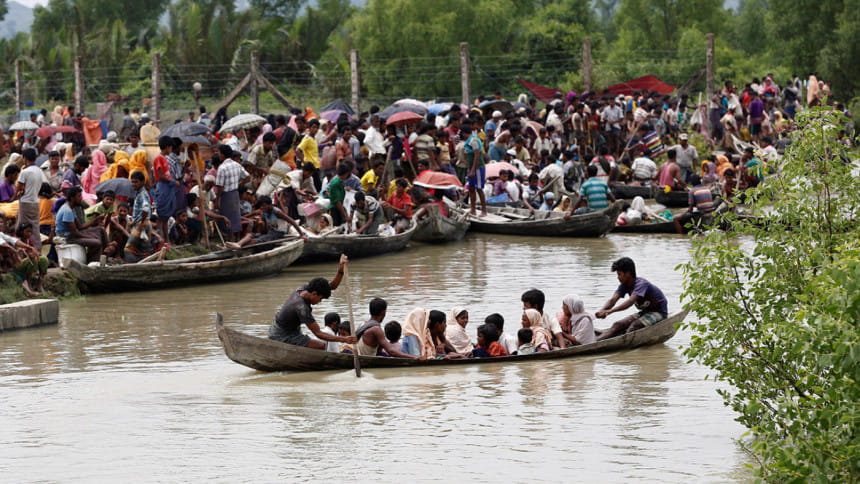
The humanitarian situation in parts of Bangladesh sheltering hundreds of thousands of Rohingya refugees continues to deteriorate, making it one of the fastest growing refugee crises of recent years, according to the United Nations.
"[The crisis is] creating enormous humanitarian needs in an area of Bangladesh already affected by earlier refugee influxes, recent floods and not equipped to cope with large numbers of new arrivals," Andrej Mahecic, a spokesperson for the Office of the UN High Commissioner for Refugees (UNHCR), told journalists at a media briefing in Geneva.
The International Committee of Red Cross (ICRC) has appealed for additional donor support for critical relief operation to address the needs of the Rohingya populations.
"I have no words to describe what I'm seeing out there," said International Federation of Red Cross spokeswoman, Corinne Ambler, about conditions in the impromptu refugee settlements currently spreading ever deeper into the forests near the border with Myanmar, according to ABC News Australia.
"There's little clean water, we've seen people fighting over money, over food, it's undignified, and it's catastrophic really," she said.
British High Commissioner in Dhaka Alison Blake says there's now a global understanding that the decades-long crisis in Rakhine cannot be allowed to continue and the UK is active to find a lasting solution to the Rohingya situation.
"And this understanding is not just to stop violence, it's to come to a lasting solution," she said, referring to the statements of her government and the UN Security Council where the UK along with Sweden tabled the issue.
The Security Council at a meeting on September 13 agreed on the importance of a long-term solution to the situation in Rakhine and called for implementation of the recommendations of the Kofi Annan commission.
Talking to a select group of journalists including this correspondent at her residence yesterday, Blake said there is no "magic wand" to solve the crisis overnight, but there is a global understanding that this cannot be allowed to continue.
The British envoy also said that Bangladesh has set an example for the world with its response to the Rohingya crisis.
"For many people I speak to, it reminds them of 1971. They remembered how they were taken in. Many people know what it is like to be a refugee," said the high commissioner.
She said the UK was not just active on the humanitarian ground. As a member of Security Council and friend of Bangladesh, they have been clear to say that people responsible for violence, the security forces of Myanmar, must stop it.
In reply to a question, Blake declined to speculate the consequences of the Security Council statement, but she said the Security Council "unanimously" sent a "powerful message".
"If you are able to tell a country to stop it and they stop it, the world would be a very different place," Blake said, adding, "There's patient and quiet diplomacy which is often important for that."
The UK government, earlier, called for violence to stop after hundreds of thousands of people fled their homes.
On Friday, it released an additional £25 million to deal with what it called the "unprecedented scale of the crisis in Bangladesh and Burma."
UK's International Development Secretary Priti Patel said a majority of the latest funding will be spent in Bangladesh.
UN Migration Agency, IOM, is also seeking a coordinated humanitarian response to the massive inflow of Rohingyas arriving in Cox's Bazar.
"A visit to the area this week by a UNHCR team, led by Assistant High Commissioner for Operations George Okoth-Obbo, found people suffering real hardship and some of the most difficult conditions seen in any current refugee situation," said UNHCR spokesperson Andrej Mahecic in Geneva on Friday.
An estimated 4,09,000 Rohingyas have arrived in Bangladesh until Friday, escaping the latest military crackdown in Myanmar's Rakhine State, says a UN report.
Of them, 22,900 Rohingyas are living in new makeshift settlements in Ukhia and Kutupalong, while 1,59,000 are living in makeshift camps set up by the Rohingyas prior to the influx that began on August 25.
On the other hand, 21,000 Rohingyas are living with the local host communities, but they are moving to other sites, said the report prepared and updated by Inter Sector Coordination Group led by the International Organisation for Migration (IOM).
ENDLESS NEED
Challenges, however, are the greatest for children. According to the UN Children's Fund (UNICEF), there are at least 2,40,000 children among the refugees, including about 36,000 who are less than a year old. There were also 52,000 pregnant and lactating women, the UN said.
"Conditions are ripe for the spread of disease," Marixie Mercado, a UNICEF spokesperson highlighted at the briefing, noting that refugees also lack drinking water.
"International response has so far been woefully inadequate, she said, adding, "Far, far more is needed, not only in funding but also in terms of hands on the ground to help scale up this relief operation.
"The needs are seemingly endless and suffering is deepening."
To help cope with this situation, the World Health Organisation (WHO) is stepping up its efforts. Yesterday, it was launching a polio and measles vaccination campaign to cover 1,50,000 newly arrived children aged six months to 15 years, said Tarik Jasarevic, a spokesperson for the UN agency.
Ikhtiyar Aslanov, the ICRC's head of delegation in Bangladesh, said: "People are fleeing their homes with very few belongings and we hope that we can relieve some of their suffering by providing much needed healthcare, water and food. However, addressing the needs of all people will not be possible without additional donor support."
'REMARKABLE GENEROSITY'
UNHCR Spokesperson Andrej Mahecic also noted that Bangladeshi communities have shown "remarkable generosity," welcoming refugees into their homes and sharing resources with them.
Among them, UNHCR has appealed for an initial amount of $30 million for its emergency response in the country until the end of year.
Similarly, UNICEF made an initial appeal for $7.3 million over three months, including almost $3 million for water and sanitation alone, but that amount was calculated on the basis of 200,000 people and that number had now doubled.
Deputy Prime Minister of Turkey Bekir Bozdağ also thanked the government of Bangladesh for hosting a big number of the Rohingya refugees. He reassured the Turkish support-both political and material-for Bangladesh on the issue.
During a meeting with Bangladesh Ambassador to Turkey Allama Siddiki in Ankara on Friday, the DPM inquired into the present status of the Rohingya crisis.
EP DELEGATION CANCELS MYANMAR VISIT
In the light of the recent developments in Myanmar, the European Parliament Committee on International Trade has decided to postpone its visit in the country, according to a post on Europarl.europa.eu.
Its chair, Bernd Lange, said: The EP's International Trade Committee decided to postpone the delegation to Myanmar to an unknown date as it was clear that the current political and human rights' situation in the country, as outlined in the resolution adopted on Thursday, does not allow for a fruitful discussion on a potential EU-Myanmar investment agreement.
It is clear that under these conditions, the ratification of an investment agreement with Myanmar is not possible".

 For all latest news, follow The Daily Star's Google News channel.
For all latest news, follow The Daily Star's Google News channel. 

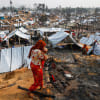
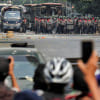
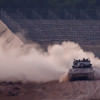

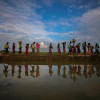


Comments